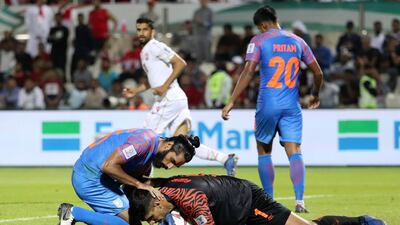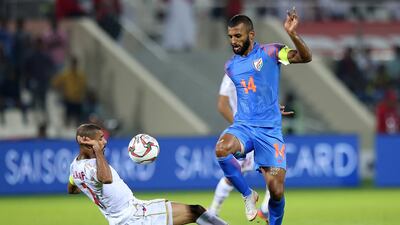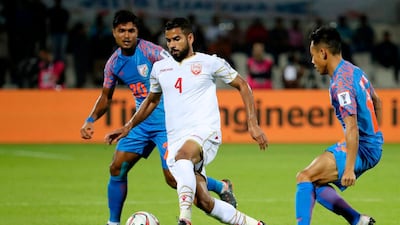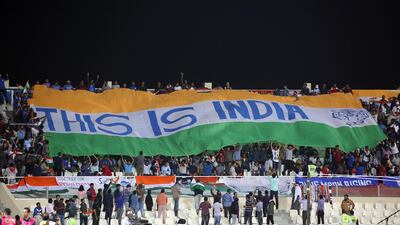A penalty for Bahrain against India at the stroke of time made all the difference on Monday night, as the Arabian Gulf side reached the Asian Cup last 16 while their opponents crashed out of the continental championship.
Indian midfielder Pronay Halder felled Hamed Al Shamsan inside the area and Jamal Rashed stepped forward to fire the winner in added time for Bahrain to win 1-0.
The result took Bahrain's tally to four points along with Thailand, who also qualified for the next round following their 1-1 draw against the UAE at Hazza bin Zayed Stadium on the same night. India finished bottom of Group A on three points.
The 'Blue Tigers' seemed to be coasting to their objective of clinching the one point needed to make the next round until the foul from captain Halder.
With the clock ticking, pressure had been mounting on Bahrain up until that point as they made desperate attempts to break the Indian defence.
They came closest to scoring on 71 minutes when Mohammed Marhoon’s effort inside the area ricocheted off the left post.
They won a free kick on the eight-yard mark after the Indian keeper gathered the ball played back towards him by the centre-back Subhasish Bose. However, Rashed’s effort hit the wall of defenders and sailed over the crossbar.

_________________
More on Asian Cup:
Football is the new cricket in India, says manager Stephen Constantine
Attorney General orders arrest of man who forced fans to cheer for UAE
India captain Sunil Chhetri rues poor finishing in UAE's Asian Cup defeat
Alberto Zaccheroni happy to give UAE supporters joy from win over India
_________________
Minutes later, Bahrain defender Hamed Al Shamsan brought down Udanta Singh outside the area, but Sunil Chhetri missed the target.
Even as Bahrain were pressing, India seemed content to play for a draw. They played the long ball effectively to leave their opponents wary of counter attacks.
The men in blue were also cheered on by a partisan crowd, filling almost 90 per cent of the 10,000-seat stadium. But at the end, it turned out to be a heartbreaking night for their fans.

















